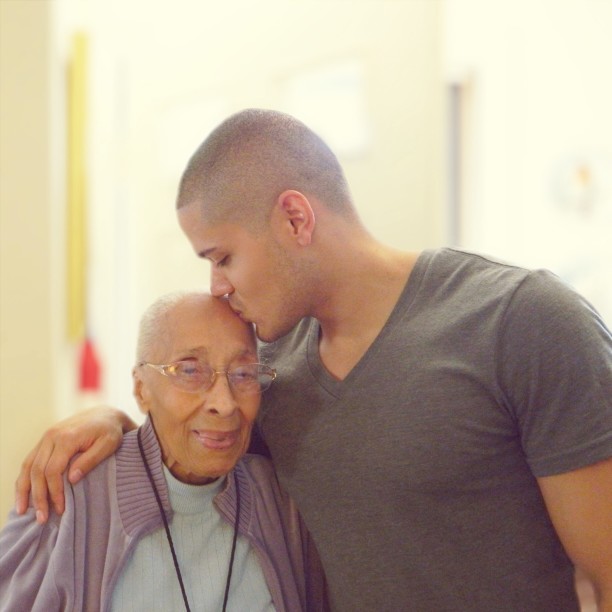What is an Advanced Directive?
- An advance directive is a legal document that you can complete on your own that can help ensure your preferences for various medical treatments are followed if you become unable to make your own healthcare decisions. It is a legal document outlining your wishes for health care, so they will be known in the event you are not able to communicate those choices. An Advance Directive usually consists of two parts:
- Durable Power of Attorney
- Statement of Treatment of Wishes
What is a Power of Attorney?
- A written document in which one person (the principal) appoints another person to act as an agent on his or her behalf, thus conferring authority on the agent to perform certain acts or functions on behalf of the Powers ofattorneyareroutinelygranted toallowtheagent totakecare of avariety oftransactionsfortheprincipal,such asexecuting astockpower,handling ataxaudit, ormaintaining asafe-depositbox.Powers ofattorneycan bewritten to beeithergeneral(full) orlimited tospecialcircumstances. Apower ofattorneygenerally isterminatedwhentheprincipaldies orbecomesincompetent,buttheprincipalcanrevokethepower ofattorney atanytime.
What is a Health Care Proxy or Durable Medical Power of Attorney?
- A special type of power of attorney that is used frequently is the “durable” power of attorney. A durable power of attorney differs from a traditional power of attorney in that it continues the agency relationship beyond the incapacity of the principal. The two types of durable power of attorney are immediate and “springing.” The first type takes effect as soon as the durable power of attorney is executed. The second is intended to “spring” into effect when a specific event occurs, such as the disability of the principal. Most often, durable powers of attorney are created to deal with decisions involving either property management or healthcare.
- Durable powers of attorney have become popular because they enable the principal to have her or his affairs handled easily and inexpensively after she or he has become incapacitated.
- With adurablepower ofattorney […]aprincipalcanappointsomeone tohandleher orhisaffairsaftershe or hebecomesincompetent,andthedocumentcan becrafted toconfereithergeneralpower orpower incertainlimitedBecause nojudicialproceedingsarenecessary,theprincipalsavestimeandmoneyandavoidsthestigma ofbeingdeclaredincompetent.
What is Guardianship?
- If a person becomes incapable of making sound decisions due to a mental incapacity, the court may appoint a substitute decision maker.
- There are various types of guardianships:
- Guardian of the Person
- Guardian of the Estate
- Guardian of Person and Estate
- Temporary Guardian
- Site: http://www.clarkcountynv.gov/public-guardian/Pages/TypesofGuardianship.aspx
What is a Living Will?
- A living will is a written, legal document that spells out medical treatments you would and would not want to be used to keep you alive, as well as other decisions such as pain management or organ donation.
- A living will may address a number of possible end-of-life care decisions such as:
- Resuscitation
- Mechanical Ventilation
- Tube Feeding
- Dialysis
- Antibiotics or antivirals
- Comfort Care
- Organ and tissue donations
- Body donation
- Site: http://www.mayoclinic.org/healthy-lifestyle/consumer-health/in-depth/living-wills/art-20046303
What is a POLST form?
- A Physician Order for Life-Sustaining Treatment (POLST) is a medical order that states what kind of medical treatment patients want toward the end of their lives. The form is printed on bright pink paper and signed by both a doctor and patient, POLST helps give seriously ill patients more control over their end-of-life care.
- Through a conversation between the patient and health care provider, patient wishes are translated to actionable medical orders. Additionally, the POLST program coordinates efforts between health care setting to assure POLST medical orders are transferred with the patient and, very importantly, unlike an Advance Directive, emergency medical services are able to honor the directives on the POLST.
- Hospice Del Sol staff can assist you with completion of this form!
What is a DNR form?
- A DNR order, short for “do not resuscitate order,” alerts emergency personnel that you do not wish to receive cardiopulonary resuscitation (CPR) in the event of a medical emergency. It is a medical order that must be signed by a doctor.
- DNR orders are used primarily by people who are already critically ill and feel strongly that they do not want life-prolonging treatment when close to death. If you do not have a DNR order, emergency medical personnel must use all available measures, no matter how invasive, to save your life.

